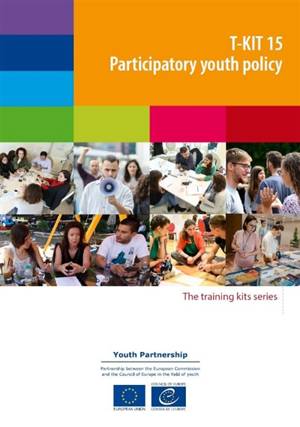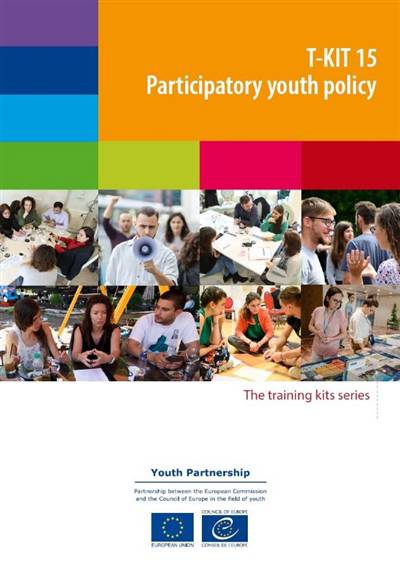
- Afhalen na 1 uur in een winkel met voorraad
- Gratis thuislevering in België vanaf € 30
- Ruim aanbod met 7 miljoen producten
- Afhalen na 1 uur in een winkel met voorraad
- Gratis thuislevering in België vanaf € 30
- Ruim aanbod met 7 miljoen producten
Omschrijving
Participatory youth policy implies that young people are involved in policy making at all stages, from inception to implementation, monitoring and evaluation. The main feature of participatory youth policy is a mobilised effort to promote co-creation of youth policy with young people and to include strengths and talents from the field, making sure that youth policy is built on democratic principles, support for solidarity, inclusion, equality, openness and outreach. Across Europe, meaningful youth participation in dialogue and mutually respectful work in policy implementation are understood to be prerequisites for effective and efficient policy making. Knowledge, understanding and commitment to knowledge-based participatory youth policy has increased exponentially following the publication by the EU-Council of Europe Youth Partnership of About time ! A reference manual for youth policy from a European perspective in 2021.
This T-Kit complements the manual and provides educational support for building youth sector capacity for participatory policy making. The knowledge developed in the sector over the past few decades, on which this T-Kit is based, will benefit youth leaders, workers, trainers and organisations advocating participatory structures, especially at local and national levels. Youth policy makers will be able to launch participatory processes by using the activities contained in this T-Kit. Organisations and experts developing training and development strategies on youth policy may find the T-Kit to be a useful resource. It is structured to enable users to find a wide range of resources in one place for successful educational processes on participatory youth policy. The T-Kit provides conceptual, methodological and educational frameworks and offers a set of educational activities and a toolbox to help address the themes of participatory youth policy making, enabling its users to learn, grow and importantly - to engage.
The Council of Europe is the continent's leading human rights organisation. It comprises 46 member states, including all members of the European Union. All Council of Europe member states have signed up to the European Convention on Human Rights, a treaty designed to protect human rights, democracy and the rule of law. The European Court of Human Rights oversees the implementation of the Convention in the member states.
The Member States of the European Union have decided to link together their know-how, resources and destinies. Together, they have built a zone of stability, democracy and sustainable development whilst maintaining cultural diversity, tolerance and individual freedoms. The European Union is committed to sharing its achievements and its values with countries and peoples beyond its borders.
Specificaties
Betrokkenen
- Auteur(s):
- Uitgeverij:
Inhoud
- Aantal bladzijden:
- 214
- Taal:
- Engels
Eigenschappen
- Productcode (EAN):
- 9789287193452
- Verschijningsdatum:
- 21/11/2023
- Uitvoering:
- Paperback
- Afmetingen:
- 210 mm x 300 mm

Alleen bij Standaard Boekhandel
Beoordelingen
We publiceren alleen reviews die voldoen aan de voorwaarden voor reviews. Bekijk onze voorwaarden voor reviews.











